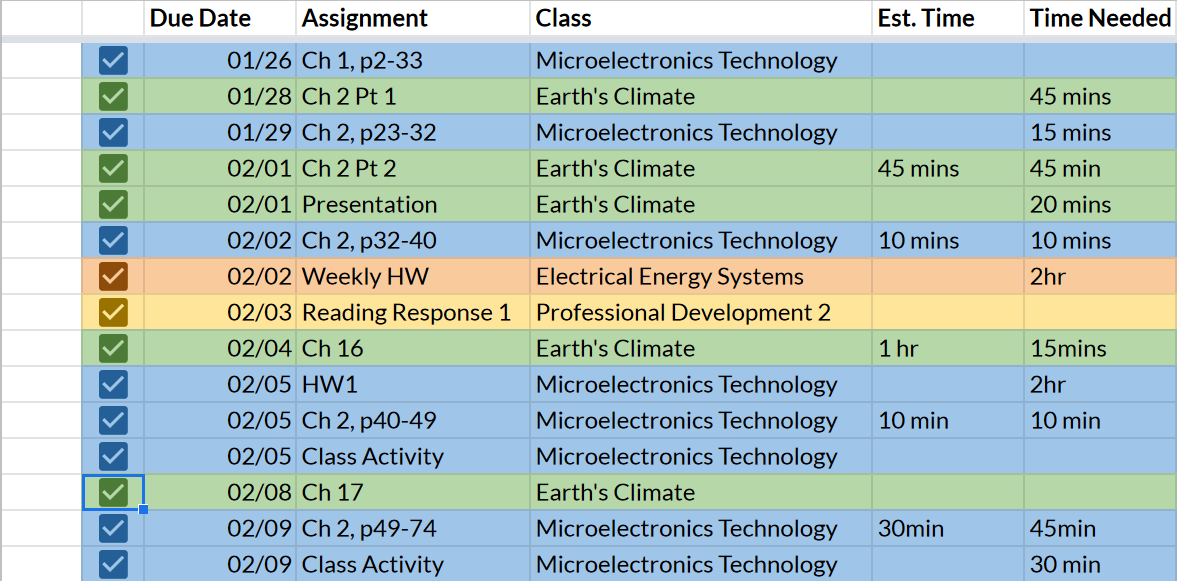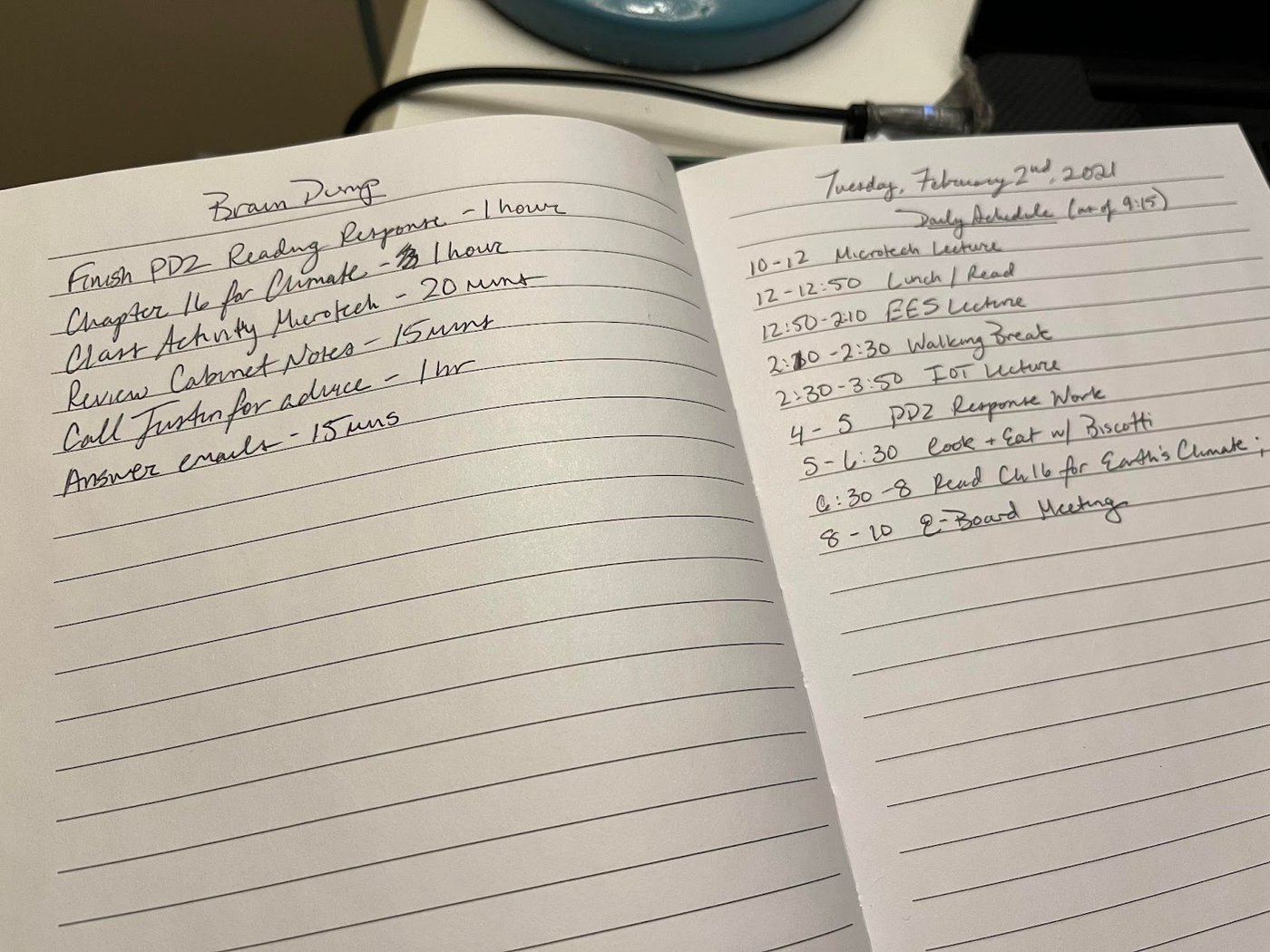What to do when you’re drowning in schoolwork
Step one: Don’t panic. Whether you are a second-semester freshman who’s still adjusting to college life, or a last-semester senior who might have hit a bit of “senioritis,” this is not the end of the world. You are still worthy. You are still good enough. You still have every bit of potential that got you into this school, and you are still capable of achieving your dreams. Over my four years here, I have worked to find a good academic plan and stick to it. Here are some of the things that helped me along the way.
Planning
Plan your semester out. You might not be the type of person who likes planning every moment of your time—I know I’m not. You might think that even if you make a plan, you won’t stick to it and it will fall through. Plan anyway. I have a few planning strategies that have worked for me in the past.
For me, a simple spreadsheet goes a long way when planning the semester. I start off by loading all of my deadlines into an assignment spreadsheet (template linked here) organized by class, due date, and estimated completion time. I even have categories for “Grand Marshal” and “Job Applications,” since those will take up time in my day.

For planning my week, I use Google Calendar. I put every class, meeting, appointment, or planned activity in it as far in advance as possible. To plan my days, I use a simple journal, because studies have shown that writing is better for memory retrieval. On the left page, I brain-dump every task for the week and the time it will take from the assignment sheet. On the right page, I write time slots based on my Google Calendar for food, work, and breaks.

This system is what works for me. Others use Trello, which is a web-based to-do list application or Google Keep to keep track of time and tasks. Others still will use just a journal or a year long planner. The important part is to commit to trying something.
Be sure to budget in time for food, water, sleep, exercise, showers, and fun! You might think that, if you just work 24 hours a day during the beginning of the semester, then you won’t fall behind. In reality, you’ll end up burnt out by week two. Take care of yourself by taking regular breaks for relaxation. It will provide you with higher motivation and energy as the semester moves on.
Accountability
After planning, it is important to find ways to hold yourself accountable to the plans that you make. One key way to create accountability is to introduce yourself to your professors and class dean at the beginning of the semester. If it’s too stressful to introduce yourself at office hours, a simple email will do. In my experience, most faculty at RPI try to find a way to connect with their students even if their class sizes go into the hundreds. Should you find yourself struggling later in the semester, you will already have a connection with key resources for your academic success.
I also recommend finding a study buddy. This can be a friend who is in the same classes, who will motivate you to do homework as a social activity. It could even be someone who you have no classes in common with; if you work with someone else who is struggling with time management, you can keep each other accountable to study hours.
Finally, review your grades on a regular basis. I would even recommend recording them in a spreadsheet. Since grades can be located on a variety of different platforms from LMS to Gradescope, there can be a disconnect between how well you think you’re doing in a class, and how well you’re actually doing in the class. Regularly reviewing your grades can identify the warning signs that you’re struggling early, giving you time to reach out to your professors or study buddies.
With all of this, it is important to be flexible throughout your college experience. No single system will work perfectly for you; it’s a learning process. My freshman year, I tried to use a year-long paper planner as my primary method of organization. But, my weekly plans changed so frequently that the planner became a hassle to upkeep. Focus on what you’ve learned from struggling. Maybe you learned that you should consider changing majors, or that RPI will take more effort than what was expected in high school, or that you need a more complete support system. When you find yourself feeling like you’re drowning, know that you are worthy of being here, and you are not alone.
